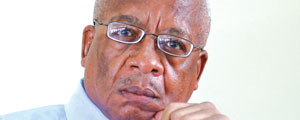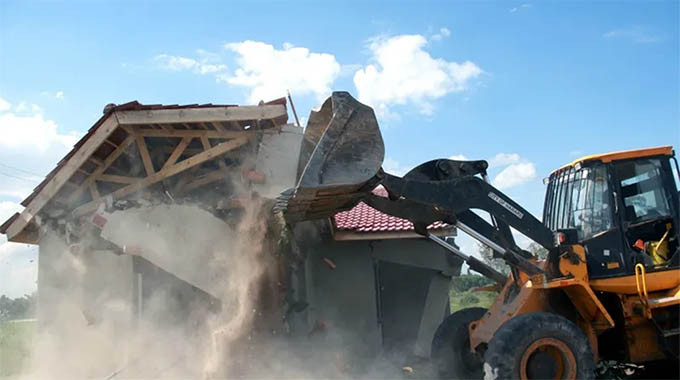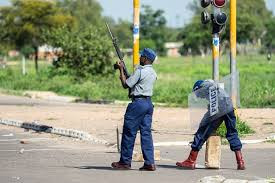
A storm has hit the British Broadcasting Corporation (BBC).
Report by Conway Tutani
The BBC is currently reeling from a major scandal that has toppled its head over the network’s handling of two reports on sex abuse, wrongly implicating a politician in one, and spiking or “killing” a report on its own popular host, the late Jimmy Savile.
One year after his death, Savile has been accused of abusing potentially hundreds of victims, while the BBC stayed silent.
Said the new BBC director-general: “The BBC is all about trust.” The BBC issued an unreserved apology.
The BBC is a public service organisation, financed within the United Kingdom by a licence fee paid by British residents. Throughout its history it has built up a reputation for trust and reliability both within the UK and beyond. It has fiercely defended itself against outside interference, especially from the UK government.
The BBC has clashed several times with governments over coverage of conflicts involving British troops. In 1956, the government was upset by coverage on the BBC of divided opinion about the decision to recapture the Suez Canal from Egypt. Schemes to “discipline” the corporation were discussed, which are believed to have included the government taking editorial control of the BBC. Ultimately, there were no sanctions and the BBC’s reputation for impartiality survived.
It has gone out of its way to convey as even-handed reporting as possible, covering all political parties’ conferences and campaigns and throwing hardball questions at all leaders without fear or favour.
- Chamisa under fire over US$120K donation
- Mavhunga puts DeMbare into Chibuku quarterfinals
- Pension funds bet on Cabora Bassa oilfields
- Councils defy govt fire tender directive
Keep Reading
This is in stark contrast to our own Zimbabwe Broadcasting Corporation (ZBC). To all intents and purposes, it’s not a public service organisation — there is nothing national about it. They have relied on kicking those with little or no opportunity for response or retaliation, more especially if they are in the opposition.
One of the too few occasions when ZBC rose to the plate was in the 1990s when TV anchor Masimba Musariri took to task the then Industry minister Kumbirai Kangai after the minister unbelievably claimed he queued like everyone else for basic commodities which were then in short supply. Yes, that was one incredible statement to make.
Musariri, taken aback by this obvious lie, asked the minister if he had heard him correctly, to which the minister said yes. The visibly disbelieving Musariri couldn’t help, but chuckle sarcastically, much to the amusement of the equally incredulous viewers.
The best thing about the BBC is the fact that you can watch reasonably good programmes most of the time without the dreadful, mind-numbing propaganda that drives viewers crazy as typical with ZBC. Many people have reached the end of the line with State-imposed broadcasting. The opposition is denied radio and TV airtime. ZBC is not fit for purpose.
That’s why many people are not paying for licences anymore, but have turned to satellite TV. But, of course, journalists are human. BBC and other journalists went along with the deceit perpetrated by the UK and the United States prior to the invasion of Iraq in 2003 that the Saddam Hussein regime possessed “weapons of mass destruction”.
In the words of the memo from the head of the UK spy agency, leaked to a journalist (on another paper) “the intelligence and the facts (were) being fixed around the policy” to topple Saddam. But on ZBC unethical journalists will survive as long as they are on the right side of the minister. They have become part of the State propaganda machinery, well-oiled at that.
ZBC is further facing an existence crisis, having failed to pay employees for the good part of this year and creditors swarming all over it. One wonders: Were persons in key posts properly employed?
How could they let things go out of hand to that extent? This is an organisation which had a head-start because of monopoly during which time it should have built its resources and extended and strengthened its reach.
Now it’s reportedly reeling in the face of competition from two new entrants, whereas BBC remains dominant, both because of its size and because of the reach of its output, outdoing its media and commercial rivals.
BBC will survive this latest crisis. The standards of journalism are exceptional. It’s not without its flaws — “too many middle-class white men in endless discussions about the euro”, said one critic — but the producers, reporters and editors are among the most qualified, experienced, thorough and dedicated. Here, what journalistic value do the likes of Tafataona Mahoso and Vimbai Chivaura add with their boring, endless, biased views which cannot even pass for discussion? ZBC provides no real news, hardly any truth, and serves only as a mouthpiece for the political establishment.
ZBC, unless it learns — or is allowed — to deal with its shortcomings and mistakes in a serious and transparent way, will remain forever below mediocrity.
ctutani@newsday.co.zw











